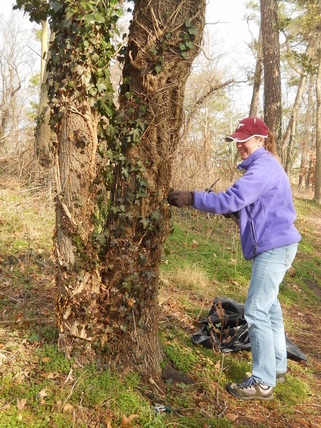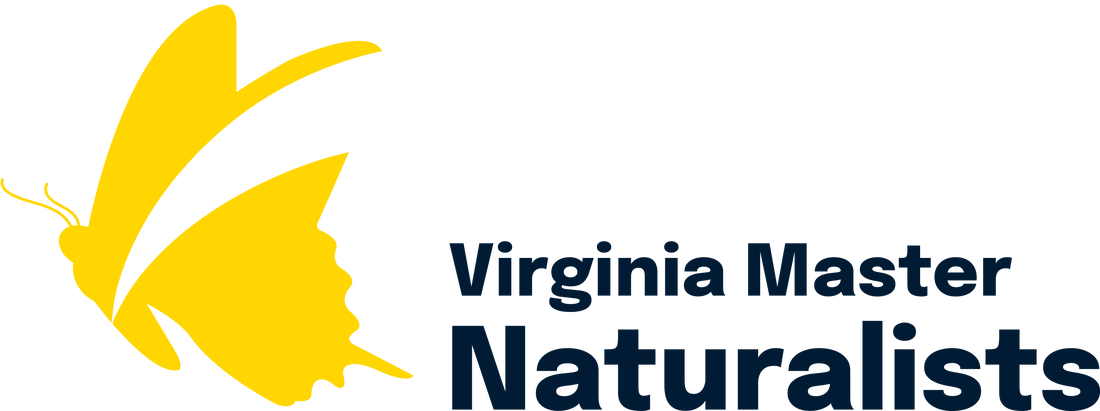 The new curriculum resources include information on projects VMN volunteers can do, such as removing invasive species, to improve ecosystem function in developed areas. Photo by VMN Historic Southside Chapter
The new curriculum resources include information on projects VMN volunteers can do, such as removing invasive species, to improve ecosystem function in developed areas. Photo by VMN Historic Southside Chapter The curriculum project came about as a result of the VMN needs assessment and strategic plan, which identified the need for more standardized curriculum resources that could be used flexibly by chapters as a top priority for the program. Developing these resources has been one focus of the Special Projects Coordinator position (Michelle Prysby).
Our overarching goals for the project include enhancing learning by enabling chapters to include more hands-on activities in their courses, improving volunteer retention by clearly tying the training content to typical volunteer projects VMNs might do, and meeting the varying training needs of our diverse chapters.
For each topic, the lengthy curriculum development process includes gathering input from program stakeholders and subject matter experts from across the state, redefining learning objectives to be more specific and more tied to volunteer projects, choosing the best existing readings and other resources to provide to VMN volunteers, developing new resources such as presentations and videos, developing lesson plans for hands-on activities that match the learning objectives, and developing appropriate assessment questions that chapters can use with their volunteers.
Our first topic to be released is "Urban and Developed Systems Ecology and Management". We chose this topic because we had funding for the project from the Virginia Department of Forestry's Urban and Community Forestry grant program. In addition, we learned from talking with chapters that many of them were not teaching this topic because they thought it did not pertain to their geographic area or because they did not have an instructor or resources for the topic. We hope that these new resources demonstrate the relevance of this topic across all of Virginia and help volunteers learn more about it. To find the new learning objectives and resources for this topic, navigate to http://www.virginiamasternaturalist.org/urban-and-developed-systems.html.
We are developing resources for additional curriculum topics as we receive funding for this project. Resources for our next set of topics (Forest Ecology and Management, Wetlands Ecology and Management, Coastal and Estuarine Ecology and Management, and Aquatic Ecology and Management) will be completed in mid-autumn. These topics are being funded by a grant from the Virginia Environmental Endowment.
We will be leading a continuing education webinar on September 30 at noon to provide VMN training chairs and committee members and any other interested volunteers with training on exactly what new resources are available and how you can use them.
Finally, we also would like to announce that a background reading for the topic of American Naturalists is now available. This manuscript was in the works long before our strategic plan or new curriculum project; we have not yet addressed the American Naturalists topic within our new curriculum resource framework. The reading, however, remains relevant to the VMN basic training, and we think it will serve as a useful resource for volunteers. Thanks to the lead author, Amber Parker (Executive Director, Chincoteague Bay Field Station) for sharing her expertise and bringing this manuscript to fruition.


 RSS Feed
RSS Feed